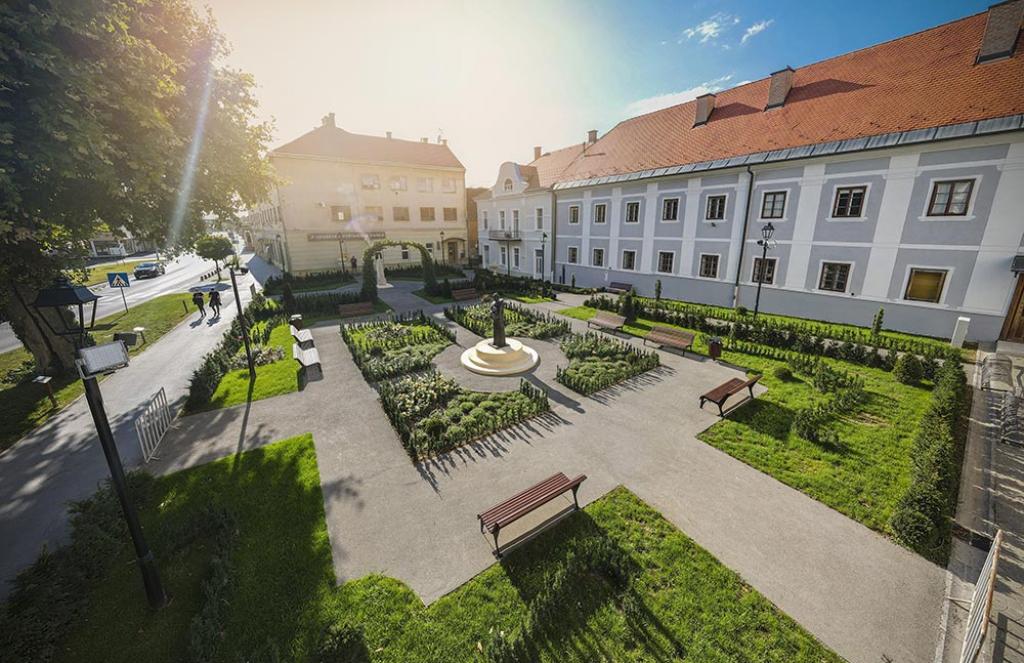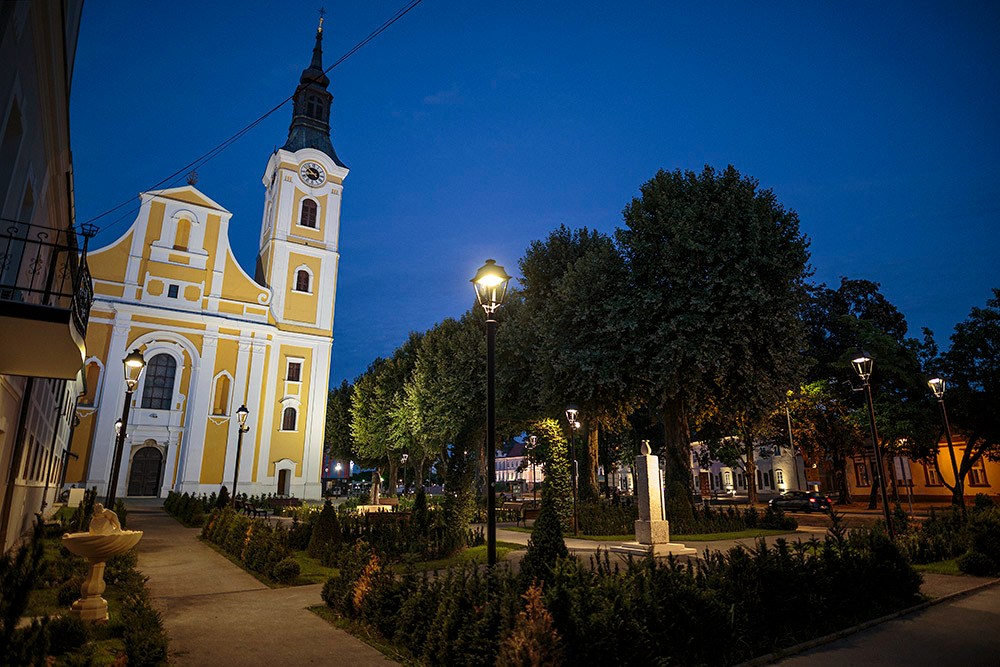Thessaloniki gets ready for its metro launch in November
The underground rapid transit lines have been under construction for almost two decades due to various project delays
 TheMayor.EU logo
TheMayor.EU logo 
The Franciscan gardens are located in the Church of St. Roka's courtyard, Source: City of Virovitica
The gardens will be part of a cross-border heritage tour with Hungary, focusing on noble families
This week, local authorities in the Croatian town of Virovitica announced that they have completed renovations of the Franciscan gardens of the Church of St. Roka. The project cost 400,000 euros and was financed through Interreg, an EU funding mechanism fostering cross-border, interregional cooperation.
Virovitica’s counterpart region is the city of Szentlorinc in Hungary, where authorities need to reconstruct Esterhazy Park. After the European project is complete, the regions will form a joint tourist route passing through historic sites on both sides of the border.
The route itself will be centred around local architecture and craftsmanship, as well as the material legacy of noble families.
The joint historic route between the two cities should start on the Hungarian side and end in Virovitica, where once a year, there will be a Historic Festival. The route will pass through architectural heritage sites and restored historic gardens bringing people in contact with local craftsmen and their original wares.
The Croatian part of the project cost around 400,000 euros, with the main expense being the Franciscan garden. At the same time, according to a statement by the city, authorities trained 10 tour guides who will help to bring visitors through the history of the region.
 The Church is one of many local attractions, Source: City of Virovitica
The Church is one of many local attractions, Source: City of Virovitica
The project does not have an announced end date yet, because the municipality in Szentlorinc, on the Hungarian side, has yet to finish their part of the reconstruction. The end schedule set out by the project guidelines suggests that it should be complete by 31 December 2022.
Nevertheless, officials believe that this example of cross-border interaction would help boost the tourism economy on both sides, putting the Hungarian-Croatian border towns ‘on the map’.

The underground rapid transit lines have been under construction for almost two decades due to various project delays

Now you can get your wine in Talence by paying directly in Bitcoin

That’s because the state has to spend money on updating the railway infrastructure rather than subsidizing the cost of the popular pass

Rethinking renewable energy sources for the urban landscape

The examples, compiled by Beyond Fossil Fuels, can inform and inspire communities and entrepreneurs that still feel trepidation at the prospect of energy transition

Now you can get your wine in Talence by paying directly in Bitcoin

The 10th European Conference on Sustainable Cities and Towns (ESCT) sets the stage for stronger cooperation between the EU, national and local level to fast track Europe's transition to climate neutrality.

At least, that’s the promise made by the mayor of Paris, Anne Hidalgo

The underground rapid transit lines have been under construction for almost two decades due to various project delays

At least, that’s the promise made by the mayor of Paris, Anne Hidalgo

Hostal de Pinós is located in the geographical centre of the autonomous region

Despite its church-y name, the district has long been known as the hangout spot for the artsy crowds

Urban dwellers across the EU are having a say in making their surroundings friendlier to people and the environment.

Forests in the EU can help green the European construction industry and bolster a continent-wide push for architectural improvements.

Apply by 10 November and do your part for the transformation of European public spaces

An interview with the Mayor of a Polish city that seeks to reinvent itself

An interview with the newly elected ICLEI President and Mayor of Malmö

A conversation with the Mayor of Lisbon about the spirit and dimensions of innovation present in the Portuguese capital














